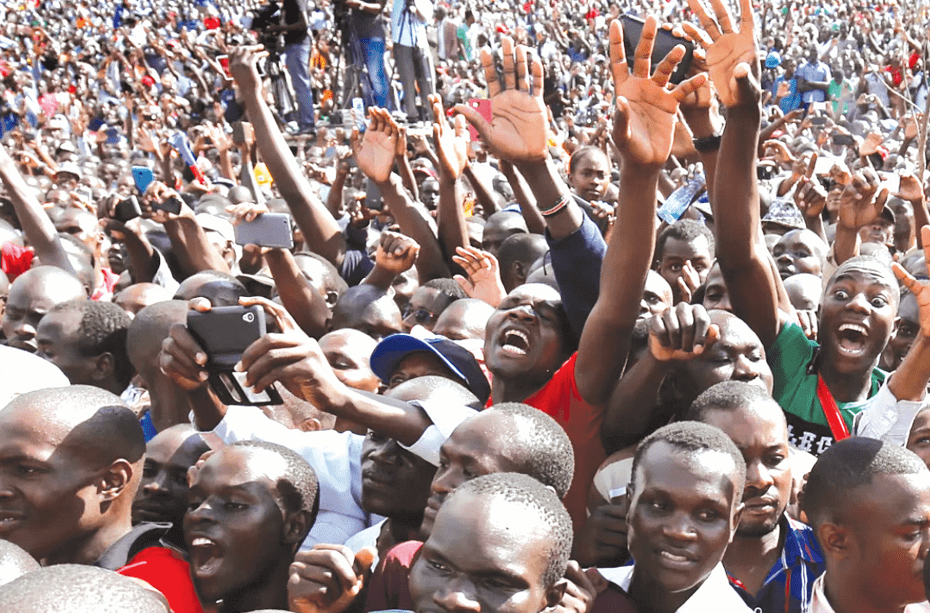Most Kenyans unhappy with reappointed CSs

A majority of Kenyans are dissatisfied with the reappointment of some Cabinet secretaries.
While 41 percent of those surveyed indicated they were dissatisfied, while another 14 percent were very dissatisfied.
In the latest poll by Intel Research Solutions (IRS), 72 percent of Kenyans feel that the country is headed in the wrong direction, nine percent think it is on the right track, while 13 percent are ambivalent.
“This suggests a critical need for governmental and policy reforms to address the concerns of the people,” said IRS chief executive Karen Mwangi.
The survey covered thematic areas such as the direction the country is heading, feelings about new nominees to the Cabinet, perceptions about the reappointment of some Cabinet secretaries, the level of support for the Gen Z movement, the direction of the Opposition and key areas that President Ruto’s broad-based government should prioritise.
Wrong direction
The survey, conducted between July 27 and 29, had a margin of error of +/- 3 and featured 1,000 respondents across eight regions of the country.
Those who feel that Kenya is headed in the wrong direction cited a high cost of living, unemployment, poverty, poor governance, extrajudicial killings, youth protests, rampant corruption in government, and poor infrastructure.
The respondents also listed increased insecurity/crime, bad politics, tribalism, unequal distribution of resources, lack of cohesion, poor quality of education, wrong societal values and high taxation.
However, those who feel that the country is headed in the right direction listed the appointment of a new Cabinet, the benefits of devolution, better infrastructure, and a stabilising economy, and improved healthcare.
Respondents with a positive outlook also contend that the Kenya Kwanza administration had lowered the cost of living, the country is actively fighting corruption and that President Ruto has appointed some opposition politicians to the Cabinet.
The report shows that Kenyans want the proposed broad-based government to prioritise the issues of unemployment, high cost of living, corruption, over-taxation, empowerment of the youth, access to quality and affordable healthcare, ethnicity and tribalism.
A majority of Kenyans also want the government to tackle the issue of extrajudicial killings, cost of doing business, insecurity, access to clean water, equal distribution of resources, drug and substance abuse and disaster management among others.
Opposition role
On the inclusion of members of ODM in the Cabinet, the report indicates that a majority of respondents (59 percent) do not believe that the nominees will perform better than their predecessors, while some 41 percent of respondents expressed optimism that the nominees will perform better than their predecessors.
Of the respondents, a slim majority (53 percent) believe that Narc Kenya leader Martha Karua, her Wiper counterpart Kalonzo Musyoka and others can effectively lead a strong Opposition to check the excesses of the Kenya Kwanza regime.
However, almost half of respondents doubt their ability to lead a strong Opposition, suggesting that a significant portion of the population is sceptical about their effectiveness in this role.
This indicates a moderate level of confidence in the leaders’ ability to provide robust Opposition leadership despite the political shifts now underway. And although there is some support for the Opposition leaders, there is considerable concern or uncertainty.
“Overall, the insights indicate a mixed but slightly positive perception of the ability of Karua, Kalonzo and their colleagues to lead a strong opposition. The balance of opinion highlights both support and scepticism, pointing to the need for these leaders to actively work on proving their effectiveness in their new roles,” said Mwangi.
Gen Z movement
The latest poll also suggests that a majority of Kenyans (91 percent) support the Gen Z movement’s efforts to hold the government accountable and get to prioritise national issues, as opposed to nine percent who do not support the movement.
According to the report, the high level of support suggests that the Gen Z movement resonates strongly with the public and reflects a broad-based agreement with the young people’s focus on government accountability.
A majority of respondents also feel that the President has not listened to or considered the Gen Z movement’s issues, with the report suggesting a prevalent sentiment of dissatisfaction or disconnection between the movement’s goals and presidential actions.
A minority of respondents believe that the President has taken the Gen Z movement’s concerns into account.
The significant majority who believe that the President has not listened indicates a strong perception that the Gen Z movement’s concerns are not being addressed by the current administration.
“This could reflect a gap between the movement’s expectations and the administration’s responses or policies,” the report says.
Kenyans have been protesting demanding for change in the government, some of the critical issues raised include: over taxation, corruption, government expenditure, the escalating high cost of living, economic hardship, unemployment, and poor political and fiscal leadership.
Kenyans particularly the Gen Zs took the fight for accountability, proper governance, extrajudicial killings and firing of incompetent Cabinet Secretaries to the streets in the month of June and July.
Although, President William Ruto took action by dissolving the entire Cabinet, few days later, he reappointed some of them back and included some members of Orange party to his cabinet awaiting vetting by the parliament.












